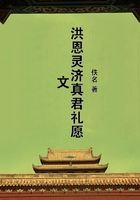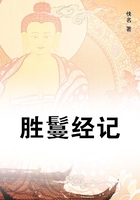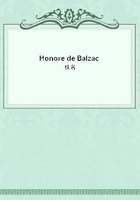The institution of a leisure class is found in its best development at the higher stages of the barbarian culture; as, for instance, in feudal Europe or feudal Japan. In such communities the distinction between classes is very rigorously observed; and the feature of most striking economic significance in these class differences is the distinction maintained between the employments proper to the several classes. The upper classes are by custom exempt or excluded from industrial occupations, and are reserved for certain employments to which a degree of honour attaches. Chief among the honourable employments in any feudal community is warfare; and priestly service is commonly second to warfare. If the barbarian community is not notably warlike, the priestly office may take the precedence, with that of the warrior second. But the rule holds with but slight exceptions that, whether warriors or priests, the upper classes are exempt from industrial employments, and this exemption is the economic expression of their superior rank. Brahmin India affords a fair illustration of the industrial exemption of both these classes.
In the communities belonging to the higher barbarian culture there is a considerable differentiation of sub-classes within what may be comprehensively called the leisure class; and there is a corresponding differentiation of employments between these sub-classes. The leisure class as a whole comprises the noble and the priestly classes, together with much of their retinue. The occupations of the class are correspondingly diversified; but they have the common economic characteristic of being nonndustrial. These non-industrial upper-class occupations may be roughly comprised under government, warfare, religious observances, and sports.
At an earlier, but not the earliest, stage of barbarism, the leisure class is found in a less differentiated form. Neither the class distinctions nor the distinctions between leisure-class occupations are so minute and intricate. The Polynesian islanders generally show this stage of the development in good form, with the exception that, owing to the absence of large game, hunting does not hold the usual place of honour in their scheme of life.
The Icelandic community in the time of the Sagas also affords a fair instance. In such a community there is a rigorous distinction between classes and between the occupations peculiar to each class. Manual labour, industry, whatever has to do directly with the everyday work of getting a livelihood, is the exclusive occupation of the inferior class. This inferior class includes slaves and other dependents, and ordinarily also all the women. If there are several grades of aristocracy, the women of high rank are commonly exempt from industrial employment, or at least from the more vulgar kinds of manual labour. The men of the upper classes are not only exempt, but by prescriptive custom they are debarred, from all industrial occupations. The range of employments open to them is rigidly defined. As on the higher plane already spoken of, these employments are government, warfare, religious observances, and sports. These four lines of activity govern the scheme of life of the upper classes, and for the highest rank -- the kings or chieftains these are the only kinds of activity that custom or the common sense of the community will allow. Indeed, where the scheme is well developed even sports are accounted doubtfully legitimate for the members of the highest rank. To the lower grades of the leisure class certain other employments are open, but they are employments that are subsidiary to one or another of these typical leisure-class occupations. Such are, for instance, the manufacture and care of arms and accoutrements and of war canoes, the dressing and handling of horses, dogs, and hawks, the preparation of sacred apparatus, etc. The lower classes are excluded from these secondary honourable employments, except from such as are plainly of an industrial character and are only remotely related to the typical leisure-class occupations.
If we go a step back of this exemplary barbarian culture, into the lower stages of barbarism, we no longer find the leisure class in fully developed form. But this lower barbarism shows the usages, motives, and circumstances out of which the institution of a leisure class has arisen, and indicates the steps of its early growth. Nomadic hunting tribes in various parts of the world illustrate these more primitive phases of the differentiation. Any one of the North American hunting tribes may be taken as a convenient illustration. These tribes can scarcely be said to have a defined leisure class. There is a differentiation of function, and there is a distinction between classes on the basis of this difference of function, but the exemption of the superior class from work has not gone far enough to make the designation "leisure class" altogether applicable.
The tribes belonging on this economic level have carried the economic differentiation to the point at which a marked distinction is made between the occupations of men and women, and this distinction is of an invidious character. In nearly all these tribes the women are, by prescriptive custom, held to those employments out of which the industrial occupations proper develop at the next advance. The men are exempt from these vulgar employments and are reserved for war, hunting, sports, and devout observances. A very nice discrimination is ordinarily shown in this matter.















